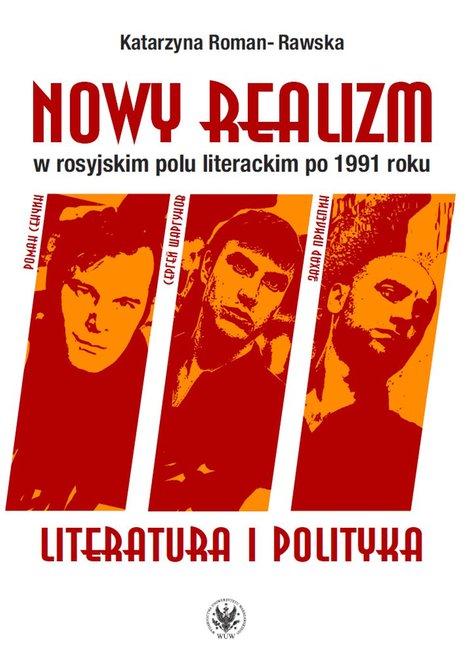Nowy realizm w rosyjskim polu literackim po 1991 roku – ebook
Książka dotyczy nowego realizmu – jednego z najnowszych trendów w rosyjskim polu literackim po 1991 roku, powstałego w opozycji do literackiego postmodernizmu; o jego specyfice stanowi przede wszystkim kryterium polityczności.
Autorka analizuje twórczość trzech klasyków nurtu: Zachara Prilepina, Romana Sienczina oraz Siergieja Szargunowa, bada mechanizmy rozwoju rosyjskiego pola literackiego w kontekście kluczowych procesów zachodzących równolegle w polu władzy politycznej. Czerpie inspiracje teoretyczne z literaturoznawstwa oraz socjologii literatury, dzięki czemu zawarty w książce obraz rosyjskiego życia literackiego po upadku ZSRR jest bogaty i wielowymiarowy.
The book focuses on "new realism": one of the latest trends in the Russian literary field after 1991, created in opposition to postmodernism. The specificity of "new realism" can be best recognized by using the criterion of politicalness.
The Author analyses literary production of three classic "new realists": Zakhar Prilepin, Roman Senchin and Sergey Shagrunov and shows the development of the Russian literary field against the background of key processes that took place simultaneously in the field of political power. She draws theoretical inspirations from literary studies and sociology of literature, making the book a rich and multidimensional study of Russian literary life after the fall of the USSR.

